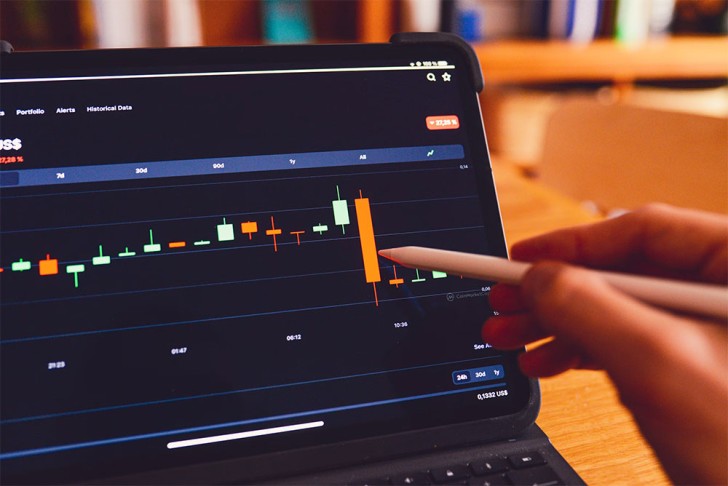Masters of their own financial domain, ambitious traders venture forth into the mesmerizing labyrinth with a fervent desire to thrive amidst the ever-evolving currents of the market. Encountering myriad pitfalls and majestic peaks alike, they are bound to traverse a path strewn with diverse hurdles that beg to be faced with unwavering determination.
With each sunrise heralding a fresh set of possibilities, these dauntless individuals tackle the intricacies of the trading industry, relentlessly honing their skills in pursuit of financial success. As the pendulum swings, they dance in harmony with the mercurial tides, seeking the sweet euphoria of a well-executed trade. Yet, beneath the surface of this seemingly idyllic world, a remarkable tapestry of challenges awaits, testing their mettle and demanding resilience.
Get prop firm trading challenges today to test and sharpen your trading skills.The art of proprietary trading requires not only a profound understanding of the myriad factors that underpin the market's mercurial nature but also a remarkable capacity to swiftly adapt to unforeseen circumstances. Amidst price fluctuations akin to a seismic symphony, traders stand as valiant sentinels, navigating tempestuous storms that threaten to unravel even the most carefully crafted strategies. Whether grappling with unexpected regulatory changes, economic downturns, or the blinding allure of emotional biases, the champions of proprietary trading are ceaselessly fueled by a tenacious spirit that propels them forward.
Risk Management Strategies: Mitigating Financial Uncertainty in Proprietary Trading
Exploring effective approaches to minimize financial unpredictability is a crucial aspect of successful proprietary trading. Within this realm, risk management strategies play a vital role in safeguarding financial stability and ensuring sustainable growth. This section delves into the various techniques and methodologies employed in mitigating potential uncertainties and protecting the profitability of proprietary trading firms.
Enhancing analytical skills is crucial for traders working in prop trading firms as they navigate the complexities of data analysis and algorithmic trading. Effectively utilizing data and implementing algorithmic strategies can help traders make informed decisions and gain a competitive edge in the dynamic trading environment.
In prop trading firms, traders need to develop strong analytical skills to effectively interpret and analyze large volumes of data. By understanding data trends, patterns, and correlations, traders can uncover valuable insights that can guide their trading decisions. Additionally, keen analytical skills enable traders to identify potential trading opportunities, assess market risks, and optimize their trading strategies.
Algorithmic trading has become increasingly prevalent in prop trading firms, allowing traders to execute trades based on predefined rules and algorithms. Developing a deep understanding of algorithms and their applications empowers traders to automate trading processes and respond to market conditions quickly. Skilled traders can leverage algorithmic strategies to monitor multiple markets simultaneously, identify profitable trading opportunities, and manage risks efficiently.
Navigating data and algorithmic trading in prop trading firms involves not only technical proficiency but also the ability to adapt to rapidly changing market dynamics. Traders must continuously update their analytical skills to stay ahead of the curve and leverage emerging technologies. Regularly reviewing and refining data analysis techniques and algorithmic trading strategies enables traders to optimize their performance and adapt to ever-evolving market conditions.
In conclusion, developing analytical skills is essential for traders in prop trading firms to effectively navigate data analysis and algorithmic trading. By honing their abilities to interpret and analyze vast amounts of data, traders can make informed decisions and capitalize on market opportunities. Additionally, mastering algorithmic trading techniques empowers traders to automate processes and stay ahead in the fast-paced trading industry.
Mental Resilience: Handling the Psychological Pressures of Prop Trading for Long-Term Success
Developing and maintaining mental resilience is crucial for achieving long-term success in the competitive world of prop trading. The ability to handle the psychological pressures that come with this demanding industry can mean the difference between thriving and succumbing to the challenges. In this section, we will explore the importance of mental resilience and provide strategies for traders to navigate the unique psychological hurdles they face.
Bouncing Back from Setbacks
One of the key components of mental resilience is the ability to bounce back from setbacks. Trading can be a rollercoaster ride, with ups and downs that can test a trader's emotional stability. Instead of dwelling on losses or becoming discouraged, resilient traders understand that setbacks are part of the learning process and use them as opportunities for growth. They remain focused on their long-term goals and adapt their strategies when needed, understanding that resilience is not about avoiding failure but rather about learning from it.
Managing Emotions and Stress
Prop trading can be a highly stressful and emotionally charged environment. Traders need to cultivate emotional intelligence and learn to manage their emotions effectively. This includes recognizing and regulating their own emotional states, as well as being sensitive to the emotions of others. Mindfulness techniques, such as meditation and deep breathing exercises, can be powerful tools for reducing stress and maintaining focus amidst the chaos of the trading floor. Building a support network of like-minded traders and seeking professional help when needed can also contribute to managing emotions and maintaining mental health.
 Editorial staff
Editorial staff

 Editorial staff
Editorial staff


